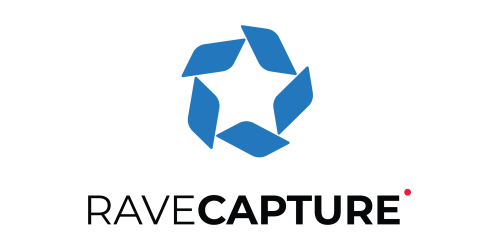ACME clients are software tools that automate SSL Certificate management by communicating with ACME servers using the Automated Certificate Management Environment (ACME) protocol.
These clients handle the entire SSL Certificate lifecycle, from initial issuance to automatic renewal.
ACME clients eliminate manual SSL Certificate processes by automatically validating domain ownership, requesting SSL Certificates, and installing them on your servers. They work seamlessly with Trustico® Certificate as a Service (CaaS) using your EAB credentials.
Think of ACME clients as your automated SSL Certificate assistants that work 24/7 to keep your domains secured without any manual intervention required.
How ACME Clients Work
ACME clients follow a standardized process to obtain and manage SSL Certificates. First, they register with the ACME server using your EAB credentials to authenticate your paid Trustico® Certificate as a Service (CaaS).
When requesting an SSL Certificate, the client automatically proves domain ownership through various validation methods such as HTTP challenges, DNS challenges, or TLS-ALPN challenges. This validation happens automatically without manual approval processes.
Once domain validation is complete, the ACME server issues your SSL Certificate, which the client can then install automatically on your web server or save to specified locations for manual installation.
ACME clients also monitor SSL Certificate expiration dates and automatically renew SSL Certificates before they expire, typically 30 days in advance, ensuring continuous protection for your websites and applications.
Popular ACME Clients
The ACME ecosystem offers numerous client options, each designed for different use cases and environments.
While all ACME clients follow the same protocol standards and work with Trustico® Certificate as a Service (CaaS), they differ in features, installation methods, and target audiences.
Certbot - The Most Popular Choice
Certbot is the most widely used ACME client, developed by the Electronic Frontier Foundation. It's officially recommended by many Certificate Authorities and offers excellent documentation and community support.
Certbot works on Linux, macOS, and Windows, with built-in support for popular web servers like Apache and Nginx. It can automatically configure your web server with new SSL Certificates or save certificates for manual installation.
Download Certbot from the official website : https://certbot.eff.org 🔗
Certbot supports EAB credentials through command-line parameters, making it perfect for use with Trustico® Certificate as a Service (CaaS).
acme.sh - Lightweight and Versatile
acme.sh is a lightweight ACME client written in shell script that works on virtually any Unix-like system. It's particularly popular among system administrators who prefer minimal dependencies and maximum compatibility.
This client supports numerous DNS providers for automated DNS validation and can deploy SSL Certificates to various services and applications automatically.
Download acme.sh from GitHub : https://github.com/acmesh-official/acme.sh 🔗
acme.sh offers excellent EAB support and integrates smoothly with Trustico® Certificate as a Service (CaaS) through environment variables.
Lego - Go-Based ACME Client
Lego is a modern ACME client written in Go that compiles to a single binary file, making it easy to deploy across different systems. It supports numerous DNS providers and cloud platforms.
Lego is particularly well-suited for containerized environments and cloud deployments where you need a self-contained ACME client without external dependencies.
Download Lego from GitHub : https://github.com/go-acme/lego 🔗
Lego provides robust EAB support and works excellently with Trustico® Certificate as a Service (CaaS) in automated deployment scenarios.
win-acme - Windows-Focused Solution
win-acme (formerly known as letsencrypt-win-simple) is specifically designed for Windows environments and IIS web servers. It provides a user-friendly interface for Windows administrators.
This client offers both interactive and automated modes, making it suitable for both initial setup and ongoing automated SSL Certificate management on Windows servers.
Download win-acme from GitHub : https://github.com/win-acme/win-acme 🔗
win-acme supports EAB credentials and integrates well with Windows-based Trustico® Certificate as a Service (CaaS) deployments.
Choosing the Right ACME Client
Your choice of ACME client depends on your operating system, web server, technical expertise, and specific requirements. Consider these factors when selecting an ACME client for your Trustico® Certificate as a Service (CaaS).
For beginners, Certbot offers the best documentation, community support, and automatic web server configuration options.
For system administrators, acme.sh provides maximum flexibility and minimal system requirements while supporting advanced deployment scenarios.
For cloud deployments, Lego's single binary design and extensive cloud provider support make it ideal for containerized and cloud-native applications.
For Windows environments, win-acme provides native Windows integration and IIS support for Microsoft-based infrastructures.
Setting Up Your ACME Client with EAB Credentials
All modern ACME clients support EAB credentials required for Trustico® Certificate as a Service (CaaS). The setup process involves configuring your client with your EAB Key ID, EAB MAC Key, and ACME Server URL.
Most ACME clients require EAB configuration during the initial account registration process. Once configured, your client can request and renew SSL Certificates automatically for your authorized domains.
Here are basic configuration examples for popular ACME clients :
Certbot EAB Configuration
Register your Certbot account with EAB credentials using this command structure :
certbot register --server YOUR_ACME_SERVER_URL --eab-kid YOUR_EAB_KEY_ID --eab-hmac-key YOUR_EAB_MAC_KEY --email your@email.com
After registration, request SSL Certificates normally using certbot certonly or certbot run commands.
acme.sh EAB Configuration
Set environment variables for your EAB credentials :
export ACME_EAB_KID="YOUR_EAB_KEY_ID"
export ACME_EAB_HMAC_KEY="YOUR_EAB_MAC_KEY"
Then register and request SSL Certificates with your ACME server URL :
acme.sh --register-account --server YOUR_ACME_SERVER_URL
Lego EAB Configuration
Use command-line parameters to specify your EAB credentials :
lego --server YOUR_ACME_SERVER_URL --eab --kid YOUR_EAB_KEY_ID --hmac YOUR_EAB_MAC_KEY --email your@email.com --domains example.com run
ACME clients can be installed through various methods depending on your operating system and preferences. Most clients offer multiple installation options to suit different environments.
Package Managers : Many ACME clients are available through system package managers like apt, yum, brew, or chocolatey for easy installation and updates.
Binary Downloads : Pre-compiled binaries are available for clients like Lego and win-acme, providing simple installation without compilation requirements.
Source Installation : Advanced users can compile ACME clients from source code for maximum customization and latest features.
Container Images : Docker containers are available for most ACME clients, enabling easy deployment in containerized environments.
Automating SSL Certificate Issuance
One of the primary benefits of ACME clients is it handles automatic domain validation and SSL Certificate issuance seamlessly whilst your Trustico® Certificate as a Service (CaaS) product is active.
ACME clients typically attempt installation 30 days before SSL Certificate expiration, providing ample time to resolve any issues before SSL Certificates expire.
Set up automatic renewal using your system's scheduler to run your ACME client renewal command daily or weekly. The client will only renew SSL Certificates that are approaching expiration.
Test your renewal process regularly to ensure it works correctly with your Trustico® Certificate as a Service (CaaS) and doesn't encounter any configuration issues.
Domain Validation Methods
ACME clients support multiple domain validation methods to prove you control the domains for which you're requesting SSL Certificates. Choose the method that best fits your infrastructure and security requirements.
HTTP-01 Challenge : Places a file on your web server that the ACME server retrieves to verify domain control. This method requires port 80 to be accessible.
DNS-01 Challenge : Creates a DNS TXT record to prove domain ownership. This method works for domains behind firewalls and enables wildcard SSL Certificate issuance.
TLS-ALPN-01 Challenge : Uses a special TLS certificate on port 443 for validation. This method is useful when port 80 is not available.
Your ACME client will automatically handle the chosen validation method when requesting SSL Certificates from your Trustico® Certificate as a Service (CaaS) account.
Troubleshooting Common ACME Client Issues
Most ACME client issues relate to network connectivity, domain validation, or configuration problems. Understanding common issues helps resolve problems quickly.
EAB Authentication Failures : Verify your EAB credentials are correct and your Trustico® Certificate as a Service (CaaS) is active. Ensure you're using the correct ACME Server URL.
Domain Validation Failures : Check that your domain points to the correct server and that firewalls allow the necessary ports for your chosen validation method.
Rate Limiting : ACME servers implement rate limits to prevent abuse. Space out your SSL Certificate requests and avoid unnecessary duplicate requests.
Permission Issues : Ensure your ACME client has appropriate file system permissions to write SSL Certificates and challenge files to the required locations.
Advanced ACME Client Features
Modern ACME clients offer advanced features beyond basic SSL Certificate issuance and renewal. These features help integrate ACME clients into complex infrastructure environments.
Hooks and Scripts : Execute custom scripts before and after SSL Certificate operations for integration with deployment pipelines and notification systems.
Multiple Domain Support : Request SSL Certificates covering multiple domains or subdomains in a single certificate for simplified management.
DNS Provider Integration : Automatically manage DNS records for DNS-01 validation through APIs with major DNS providers and cloud platforms.
Certificate Deployment : Automatically deploy SSL Certificates to load balancers, CDNs, and other services after successful issuance or renewal.
Getting Support for ACME Clients
Each ACME client has its own support channels and documentation resources. Most clients offer comprehensive documentation, community forums, and issue tracking systems.
For Trustico® Certificate as a Service (CaaS) specific issues, our support team can help troubleshoot EAB authentication and configuration problems, however, it is important to review the documentation of your chosen ACME client and your infrastructure.
When seeking support, include your ACME client version, operating system, and any error messages. Never share your EAB MAC Key in support communications.
Service Continuity and Renewal
Automated SSL Certificate installation and management through Trustico® Certificate as a Service (CaaS) operates seamlessly only while your paid service remains active.
Your ACME client will continue to automatically renew SSL Certificates and maintain continuous protection as long as your service subscription is current.
To ensure truly seamless SSL Certificate management without interruption, it's essential to renew your Trustico® Certificate as a Service (CaaS) before expiration or consider setting up automatic billing for uninterrupted service continuity.
If your service expires, your ACME client will be unable to renew SSL Certificates, potentially leading to SSL Certificate expiration and website downtime until service is restored.






